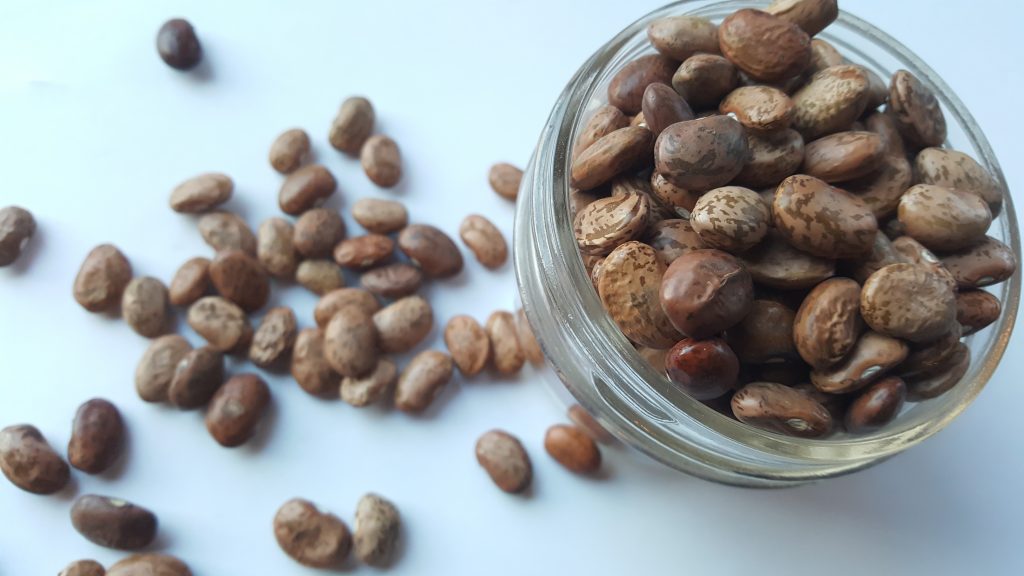Grown by Brian Unrau on his organic farm near MacGregor Manitoba, these beans are the perfect addition to chili, refried beans, minestrone soup, bean burgers, and all things deliciously bean-y. We are excited that we were able to clean and mill this amazing crop and bring it to Manitoba eaters!
Brian’s crops are grown organically, without any chemical fertilizers, insecticides, or herbicides, and always keeping the health of his soil in mind. He had grown a larger quantity of beans and sold them to a larger processor. But there were about 3,000 pounds that didn’t fit on the truck that brought his crop to the buyer.
Simple though it is, this situation is repeated again and again, on nearly every farm across the continent, with “leftover” crops being downgraded to animal feed or “lost” for no reason other than transportation logistics. This seemingly insignificant mismatch of quantities accounts for 10% of all food-waste world wide. In the grain world, quantities are measured in tonnes, so a quantity of a thousand kilograms hardly even registers on the scale. But these quantities don’t line up with the reality of our dinner plates: a few thousand pounds is a LOT of food, and the environmental impact of recovering that food is pretty nifty.
We are excited to be able to fill the gap in processing by purchasing this “small” batch of locally grown beans, cleaning them in our oat mill (the process of removing straw/seedpods/weeds/dirtclods/unsuitable beans/etc), and making them available for Manitoba kitchens! We are excited that by zooming in and looking a bit closer, we can help to reduce food-waste and give these beans the love they deserve.

If you’re still reading, feel free to follow along to my terrible napkin-math. If I eat a massive bean-burger made with a hypothetical 1kg of beans, I will consume .23kg of protein (and probably a stomach-ache, but bear with me, I gotta keep to round numbers here…). Each kilogram of protein from beans took about 6.5kg of carbon to get to your plate (https://ourworldindata.org/less-meat-or-sustainable-meat), so the carbon impact of my bean-burger would be 1.495kg of carbon dioxide. If I instead eat a gigantic burger made with 1kg of industrially produced beef (and this is a whole conversation to itself…there are a lot of amazing regenerative farms out there using pasture raised animals to capture carbon and increase soil health…), I will get 0.27kg of protein. With each kilogram of protein from beef producing 250kg of carbon, the impact of that meal is 67.5kg of carbon. A bit of button punching on my calculator tells me that if we recover the 3,000lbs of pinto beans, and if those beans sneak their way into your diet in a way that replaces meat, it means we’ve collectively kept 89,964 kg of carbon out of the atmosphere! And that’s not even touching on the ecological impact of keeping crops here in Manitoba instead of shipping them across the continent (sometimes across the ocean!) to be cleaned and packaged before being shipped back here again.
I’m sure there are holes in my equations, but I also know that, numbers aside, when I pull out my largest pot to slowly simmer a batch of beans or lentils for the meal ahead, I feel a little bit less helpless about the bleak environmental news around me. It is something that I can do that makes a positive difference for my family and for the ecosystems around me.
